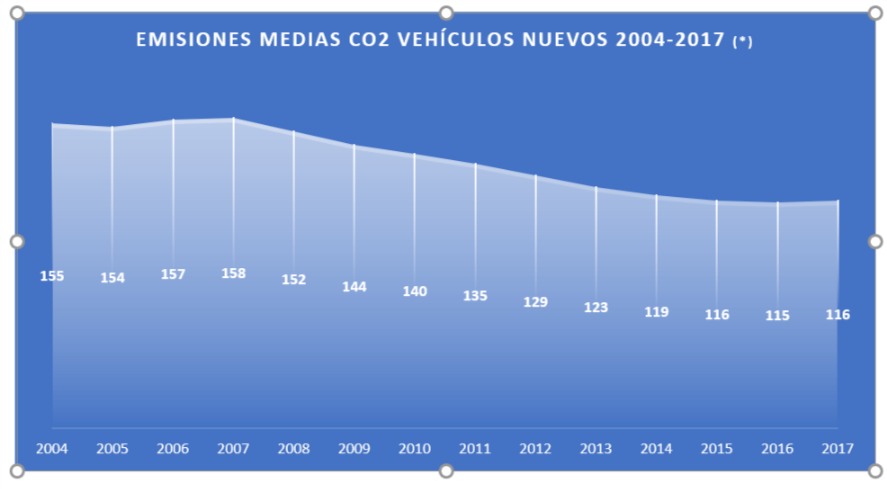The average emissions of carbon dioxide (CO2) of new cars sold in Spain stood at 116 grams per kilometer traveled in 2017, which is one gram more than the average of the previous year, according to MSI consultancy for employers of the concessionaires, Faconauto. In this way, it ends with a tendency of falls in this statistic that lasted ten years.

Faconauto attributed this increase in the first place to the boom in sales of small and medium SUVs, which in 2017 accounted for 31.2% of the market and whose average emissions are higher than those of other types of vehicles.
Likewise, the fall in the registrations of the models that assemble diesel engines of last generation, that emit less CO2 than those of gasoline, is another key that explains this variation, in the employer’s opinion. Sales of diesel cars fell by 8.3% last year, while gasoline sales increased by 24.2%, although the first accounted for 48.3% of all acquisitions.
In this regard, Faconauto recalls that, with the current reality of the market, with a preponderance of combustion engines, diesel will still have to play a key role for manufacturers to meet the requirements of reducing average CO2 emissions that the EU has set at 95 grams for the year 2021 and at 66 grams in 2030.
Sort the speech
For the employer it is essential that, at this moment, the discourse around the combustion engines and, particularly, around the diesel is ordered. The debate that is being generated from social and political spheres is unrealistic, does not respond to the demands of consumers and is artificially accelerating its demise, which may be counterproductive to the common objective, in which the sector is the first interested and It is absolutely involved, which is the improvement of the environment.
Faconauto believes that the transition of the market towards Alternative Energies Vehicles (VEA) is being very slow and not very intensive in the EU, particularly in Spain. The forecast for this year is that hybrid cars do not account for more than 6% of all registrations, while the weight of electric cars in our market will be limited to 0.5%. Regarding the latter, the most optimistic advance of the dealers’ employers is that their registration quota in 2025 is around 18%.
Therefore, while there is a necessary transition to low emission vehicles, and a park in our country of 22 million vehicles whose average age is 12 years, the environmental improvement in the medium term still passes through the current and efficient engines of combustion. Said improvement, according to Faconauto, will not occur if the problem is not focused, that today it is not that the cars are combustion, but that they are very old and, therefore, more polluting.
“We need a turning point so that, effectively, we address the improvement of the environment, which now must focus on renewing the fleet. That turning point has to be led by the Government through some of the laws related to the car that is promoting and, in any case, by the expected change in the taxation of the car, which may be the most effective tool to accelerate the Arrival on the roads of more efficient and safe cars. Of course, any change that occurs in this regard can not harm the lower income. If the government addresses these changes, surely the problem will be focused, which are not combustion engines but the resale of very old vehicles as there are no incentives to scrap, and we can establish a realistic timetable that leads to the progressive implementation of the low emission cars “, said the president of Faconauto, Gerardo Pérez.
